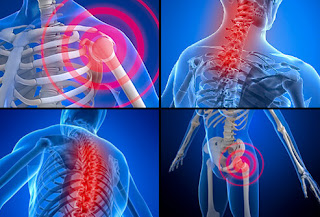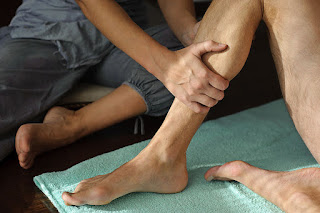Coping with Pain using Music
Music is often said to be a cure for the problems of the soul.
In times of emotional duress people around the world turn to music to bask in
the too familiar melodies of heartbreak or sadness that echo their inner
turmoil.We also do this to celebrate and highlight the positive emotions in our
lives. From birthday songs to first dances, music helps to shape our perception
and influence our emotions.
By understanding the effect music can have on our emotions, we
are able to utilize it to our best advantage. Research has suggested that this
effect is something that can not only be felt emotionally but also physically
in terms of pain management.
While the effects of music for psychiatric illnesses is well
documented, it is important not to overlook the significant physical effects it
can have on a person.
Music has been proven to help lower anxiety, blood pressure,
depression, and distress caused by pain. Even more interesting, research has
seen music can influence a patient’s perception of the intensity of their pain which
can result in a drop in pain medicine required.
For those who suffer from chronic pain, music can drastically
improve their quality of life. Whether it is jazz or classic rock, the calming
effects of one’s favorite tunes can distract those in pain enough that the
neurological impulses associated with pain are affected. If those who deal with
chronic pain can understand and harness the positive power of music they will
ultimately have the potential to use music to help treat their chronic pain.
What is it about music that sets it apart from other similar
methods? While many turn to meditation and breathing techniques to deal with
chronic pain, for those who need more guidance with focusing on something other
than pain music can help.
Music provides a central point for the attention of the
individual suffering with chronic pain. Those who meditate need to imagine
their own point of focus such as the regularly prescribed dissociation
techniques. While these work for many, some find it difficult to focus on
something not tangible when dealing with pain. Music, while not physically
tangible, is enough of a permeable entity that it can bridge the gap for those
who struggle to focus on an imaginary image.
Moreover, while there have been lots of research on how the
different genres of music can effect different areas within your brain. For
instance, it is very popular to hear college professors tell their students to
listen to classical music on low as they study because it helps with memory
retention. In terms of dealing with chronic pain, however, there is no one
genre of music. In fact, researchers have found that the individuals favorite
music often is the best genre to listen to.
You might be wondering how this can be when so many other
researchers have shown the power of particular genres in relation to brain
activity. The reason why this is different is because music is acting as a
relaxant which in term lowers the bodies stress so the pain lessens overall.
Because the music is not looking to target any particular brain function but
rather provide a tool to help the individual relax it needs to be a personal
choice. So, if the individual experiencing the pain finds classic rock soothing
or if they prefer pop hits it doesn’t matter as long as it is familiar music
that they enjoy. This phenomenon is similarly seen in patients with dementia
who, after listening to their favorite tunes, experience less distressed
behavior than their peers who do not listen to music.
Skeptics abound question the legitimacy of music as part of a
coping routine for chronic pain. Music therapy has quickly advanced into a
well-respected and heavily studied area throughout academia. Like listening to
music, actually participating in the playing of music can aid in the decrease
of stress of an individual, once again allowing for an overall decrease in painwithin the person.
Like with many areas of study, there is still so much to be
learned. As of now, the reason why music is such a powerful tool is because of
the psychological effects it has on reducing stress. As we study and learn more
about the different hows and whys of this occurrence, researchers will open the
door to better direct and harness the powerful soothing balm of music. Until
then those suffering from chronic pain would benefit from taking the time to
listen to their favorite music as a stress relief throughout the day.




Comments
Post a Comment